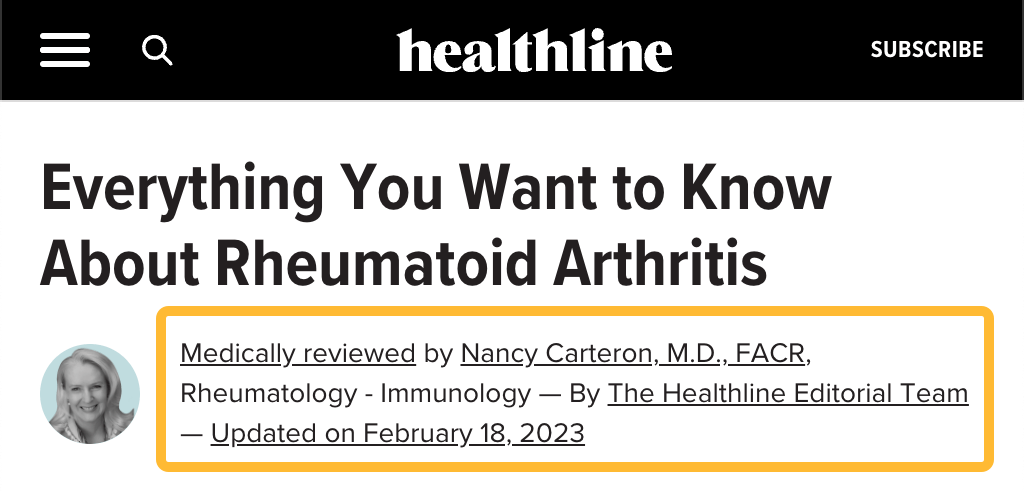Google’s quality rater guidelines encourage authors to demonstrate “EEAT” in their content: expertise, experience, authoritativeness, and trustworthiness.
These guidelines are used by Google’s quality raters, and although they’re not a direct ranking factor, they give a clear indication of the type of content Google aims to reward in its search results. You can emphasize your EEAT in a few different ways:
- Show relevant expertise in your author bio. This is especially important for so-called YMYL (Your Money or Your Life) topics: medical content should be reviewed by medical professionals, investment advice by accredited investors, and so on.
- Include expert quotes. When your expertise isn’t enough to be authoritative on the subject, seek out quotes and feedback from people who are experts (especially in fields that require specific certifications and qualifications, like healthcare or accountancy).
- Get hands-on with your topic. If you’re writing about brewing espresso, actually go and brew a few hundred shots. Reviewing free CRM software? Download, install, and spend a few hours with each option. If you aren’t willing to go to these lengths, there’s a good chance you’ll be beaten by someone who will.
- Show evidence. Prove to readers (and Google) that you did the thing you’re talking about: add experience to your author bio, and include original photographs and videos of your experience.

Leave a Reply